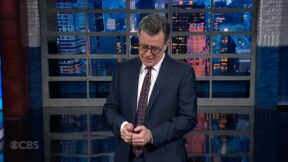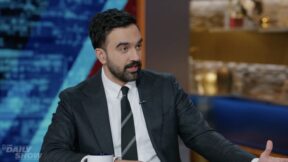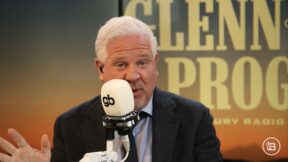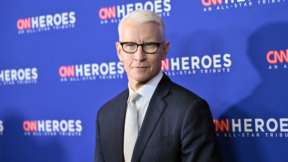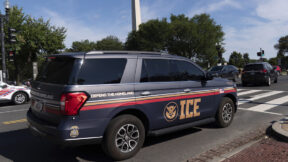Republican-Led Senate Intel Report Outlines Russian Connections, Counterintelligence Risks Linked to Trump 2016 Campaign
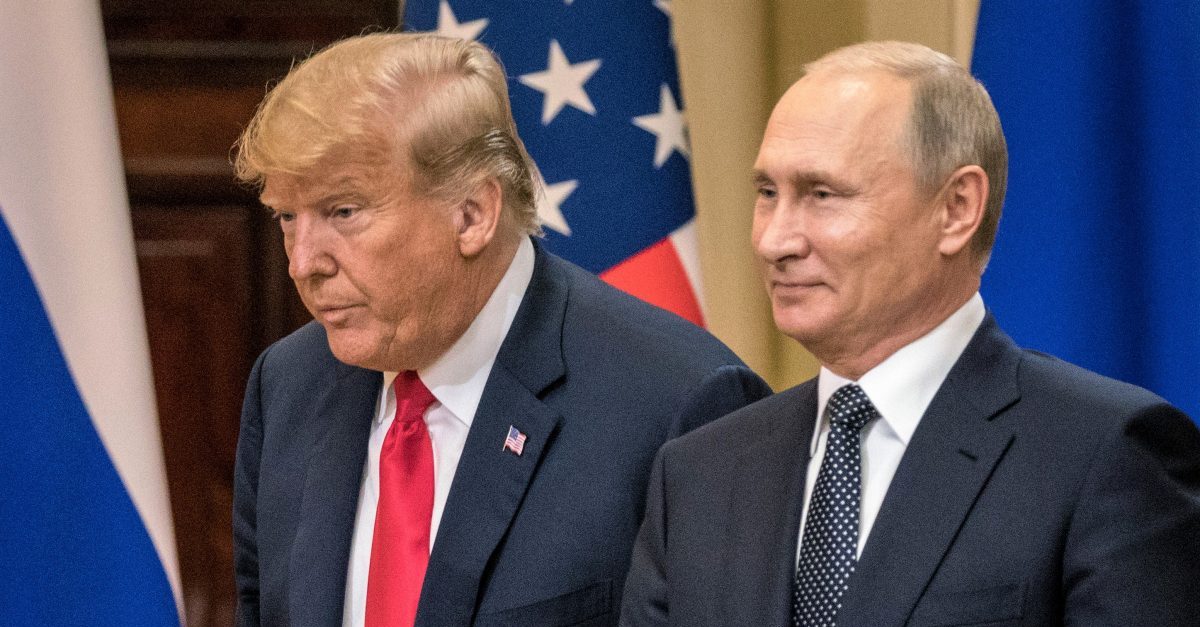
The Senate Intelligence Committee released a new collection of documents on Tuesday, which is believed to be the final volume of their report on Russia’s attempts to interfere with the 2016 U.S. presidential election.
The 900 plus page report goes into great detail on former Trump campaign chairman Paul Manafort and his entanglement with Russian figures. One portion of the report says that Konstantin Kilimnik, an associate of Manafort, is a Russian intelligence officer who served as a conduit with Russian oligarchs, was privy to internal campaign information and might have been connected to the the GRU’s 2016 hack-and-leak operation. This was summarized as a “grave counterintelligence threat.”
From the Manafort findings:
Manafort hired and worked increasingly closely with a Russian national, Konstantin Kilimnik. Kilimnik is a Russian intelligence officer. Kilimnik became an integral part of Manafort’s operations in Ukraine and Russia, serving as Manafort’s primary liaison to Deripaska and eventually managing Manafort’s office in Kyiv. Kilimnik and Manafort formed a close and lasting relationship that endured to the 2016 U.S. elections. and beyond.
Prior to joining the Trump Campaign in March 2016 and continuing throughout his time 6n the Campaign, Manafort directly and indirectly communicated with Kilimnik, Deripaska, and the pro-Russian oligarchs in Ukraine. On numerous occasions, Manafort sought to secretly share internal Campaign information with Kilimnik. The Committee was unable to reliably determine why Manafort shared sensitive internal polling data or Campaign strategy with Kilimnik or with whom Kilimnik further shared that information. The Committee had limited insight into Kilimnik’s communications with Manafort and into Kilimnik’s communications with other individuals connected to Russian influence operations, all of whom used communications security practices. The Committee obtained some information suggesting Kilimnik may have been connected to the GRU’s hack and leak operation targeting the 2016 U.S. election.
The report goes on to say later that Kiliminik “almost certainly helped arrange some of the first public messaging that Ukraine had interfered in the U.S. election.”
In the committee’s findings on Russia’s cyber campaign to help Trump and damaged the Democratic Party, the report noted that the Trump Campaign “sought to maximize the impact” of hacked documents released by the GRU and WikiLeaks. The report further said the Trump campaign was “indifferent” to advancing a Russian interference effort as they worked to exploit the leaks, senior officials like Roger Stone sought advanced notice of the document dumps, and developed messaging strategies to promote leaked materials.
Trump and senior Campaign officials sought to obtain advance information about WikiLeaks’s planned releases through Roger Stone. At their direction, Stone took action to gain inside knowledge for the Campaign and shared his purported knowledge directly with Trump and senior campaign officials on multiple occasions. Trump and the Campaign believed that Stone had inside information and expressed satisfaction that Stone’s information suggested more releases would be forthcoming. The Committee could not reliably determine the extent.of authentic, non-public knowledge about WikiLeaks that Stone obtained and shared with the Campaign.
On the infamous Trump Tower meeting where Donald Trump Jr. met with Russians connected to the Kremlin, the report reiterated that the campaign’s intent was to receive dirt to use against Hillary Clinton, but the meeting ended up disappointing all parties involved.
“The Committee found no reliable evidence that information of benefit to the Campaign was transmitted at the meeting, or that then-candidate Trump had foreknowledge of the meeting,” it said.
The report goes on to say the Trump Organization was trying to get Trump Tower Moscow off the ground as the president was running for office, though the effort did not advance past initial negotiations. It also scrutinized the FBI’s investigations on Russia’s interference, saying the process was “flawed” between their interactions with the DNC and their “unjustified credence” for the Christopher Steele dossier.
“At nearly 1,000 pages, Volume 5 stands as the most comprehensive examination of ties between Russia and the 2016 Trump campaign to date – a breathtaking level of contacts between Trump officials and Russian government operatives that is a very real counterintelligence threat to our elections,” said Senate Intelligence Committee Ranking Democrat Mark Warner (VA). “This cannot happen again.”
Acting Senate Intelligence Chairman Senator Marco Rubio (R-FL) countered “We can say, without any hesitation, that the Committee found absolutely no evidence that then-candidate Donald Trump or his campaign colluded with the Russian government to meddle in the 2016 election…Russia took advantage of members of the Transition Team’s relative inexperience in government, opposition to Obama Administration policies, and Trump’s desire to deepen ties with Russia to pursue unofficial channels through which Russia could conduct diplomacy.”
